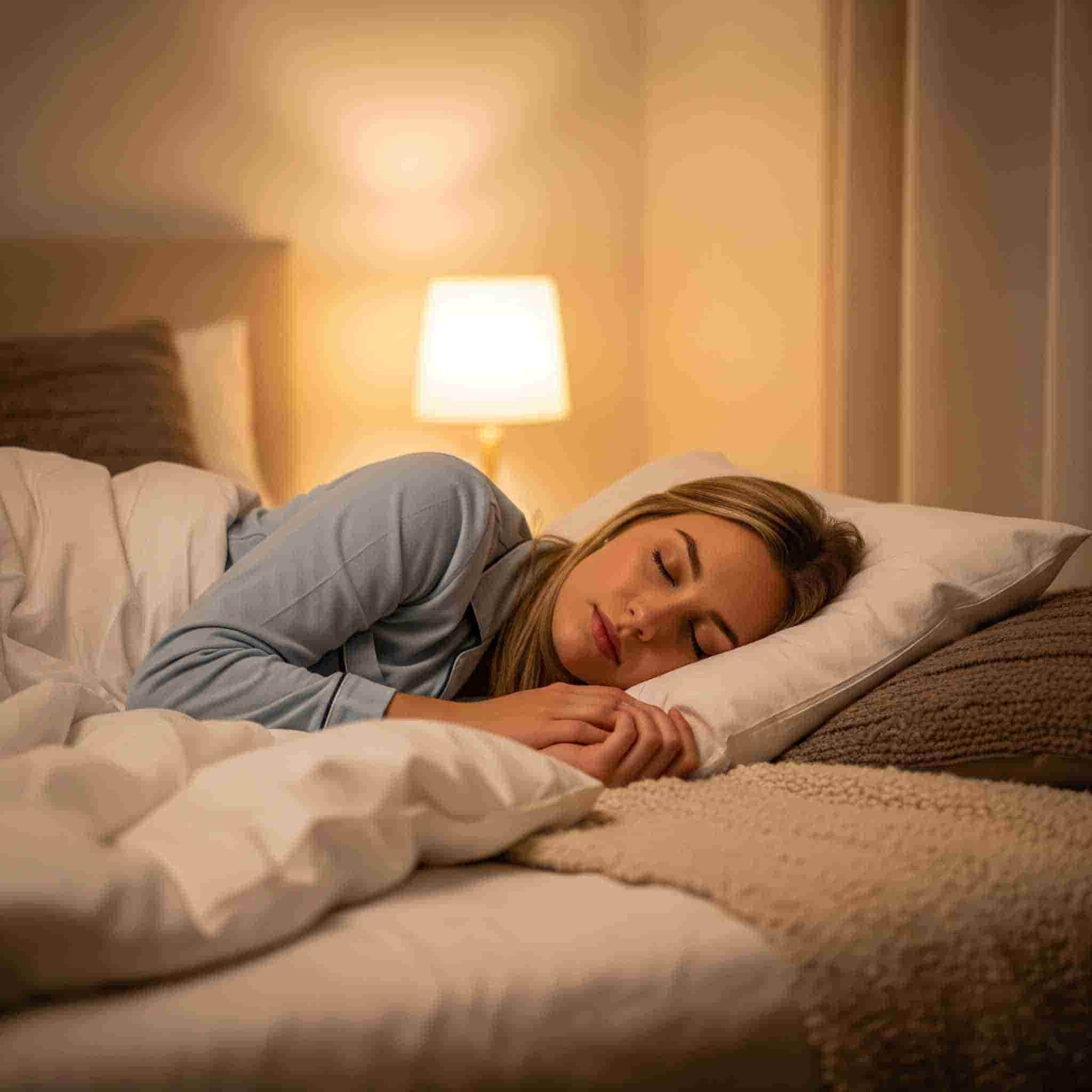Dealing with insomnia can feel overwhelming and frustrating, but you're not powerless against it. Whether you're struggling with occasional sleepless nights or chronic insomnia, there are proven strategies and treatments that can help you reclaim your sleep. This comprehensive guide will walk you through evidence-based approaches to overcome insomnia and develop lasting healthy sleep habits.
Understanding Your Insomnia
Before diving into solutions, it's crucial to understand what type of insomnia you're experiencing and what might be causing it.
Types of Insomnia
- Acute Insomnia: Short-term sleep problems lasting days to weeks, often triggered by stress, life changes, or environmental factors
- Chronic Insomnia: Persistent sleep difficulties occurring at least 3 nights per week for 3 months or longer
- Onset Insomnia: Difficulty falling asleep initially
- Maintenance Insomnia: Trouble staying asleep or frequent awakenings
- Terminal Insomnia: Waking up too early and being unable to return to sleep
Common Causes to Address
- Stress and Anxiety: Work pressure, relationship issues, financial concerns
- Poor Sleep Hygiene: Irregular sleep schedule, stimulating activities before bed
- Medical Conditions: Sleep apnea, restless leg syndrome, chronic pain
- Medications: Stimulants, certain antidepressants, blood pressure medications
- Lifestyle Factors: Caffeine, alcohol, irregular work schedules
- Environmental Issues: Noise, light, temperature, uncomfortable mattress
Sleep Hygiene: Your Foundation for Better Sleep
Good sleep hygiene forms the cornerstone of insomnia treatment. These practices create optimal conditions for sleep and help regulate your body's natural sleep-wake cycle.
Optimize Your Sleep Schedule
- Consistent Bedtime and Wake Time: Go to bed and wake up at the same time every day, even on weekends
- Avoid Long Naps: If you must nap, limit it to 20-30 minutes before 3 PM
- Get Morning Sunlight: Expose yourself to bright light within an hour of waking to regulate your circadian rhythm
- Limit Evening Light: Dim lights 2-3 hours before bedtime and avoid screens or use blue light filters
Create an Ideal Sleep Environment
- Temperature: Keep your bedroom cool (60-67°F/15-19°C)
- Darkness: Use blackout curtains, eye masks, or eliminate light sources
- Quiet: Use earplugs, white noise machines, or address noise sources
- Comfort: Invest in a supportive mattress and comfortable pillows
- Purpose: Reserve your bedroom for sleep and intimacy only
Pre-Sleep Routine
- Wind-Down Time: Start relaxing activities 1-2 hours before bed
- Avoid Stimulants: No caffeine after 2 PM, limit alcohol, avoid large meals before bed
- Relaxing Activities: Reading, gentle stretching, meditation, warm bath
- Worry Time: Set aside 15 minutes earlier in the evening to write down concerns
Cognitive Behavioral Therapy for Insomnia (CBT-I)
CBT-I is considered the gold standard treatment for chronic insomnia, with success rates comparable to or better than sleep medications, but without side effects.
Sleep Restriction Therapy
This technique involves limiting the time spent in bed to match your actual sleep time, then gradually increasing it as sleep efficiency improves.
- Track your sleep for 1-2 weeks to determine average sleep time
- Set a fixed wake time and calculate bedtime based on average sleep duration
- Only go to bed when sleepy, not just tired
- Get out of bed at the same time regardless of sleep quality
- Gradually increase time in bed as sleep efficiency reaches 85%
Stimulus Control
This approach helps your brain associate the bed and bedroom with sleep, not wakefulness.
- Only use the bed for sleep and sex
- If you can't fall asleep within 20 minutes, get up and do a quiet activity
- Return to bed only when sleepy
- Repeat as necessary throughout the night
- Maintain consistent wake times regardless of sleep quality
Cognitive Restructuring
Address unhelpful thoughts and beliefs about sleep that contribute to insomnia.
- Identify Sleep-Related Worries: "I must get 8 hours or I'll be useless tomorrow"
- Challenge Catastrophic Thinking: Question the evidence for worst-case scenarios
- Develop Realistic Expectations: Accept that some nights will be better than others
- Focus on Function: Evaluate how you actually feel and perform, not just sleep duration
Relaxation Techniques and Stress Management
Learning to relax your mind and body is essential for overcoming insomnia, especially when stress and anxiety are contributing factors.
Progressive Muscle Relaxation (PMR)
This technique involves systematically tensing and relaxing different muscle groups to release physical tension.
- Start with your toes and work up to your head
- Tense each muscle group for 5-10 seconds
- Release the tension and notice the contrast
- Focus on the feeling of relaxation for 10-20 seconds
- Practice regularly, not just at bedtime
Deep Breathing Exercises
Controlled breathing activates the parasympathetic nervous system, promoting relaxation.
- 4-7-8 Breathing: Inhale for 4, hold for 7, exhale for 8 counts
- Box Breathing: Inhale for 4, hold for 4, exhale for 4, hold for 4
- Diaphragmatic Breathing: Focus on breathing deeply into your belly, not chest
- Practice during the day to make it more effective at night
Mindfulness and Meditation
Mindfulness practices help quiet racing thoughts and reduce the anxiety that often accompanies insomnia.
- Body Scan Meditation: Systematically focus attention on different parts of your body
- Mindful Breathing: Focus solely on the sensation of breathing
- Loving-Kindness Meditation: Cultivate feelings of compassion and peace
- Guided Sleep Meditations: Use apps or recordings specifically designed for sleep
Stress Management Strategies
- Regular Exercise: Aim for 30 minutes of moderate activity, but not within 4 hours of bedtime
- Journaling: Write down worries, gratitude, or tomorrow's tasks before bed
- Time Management: Organize your day to reduce evening stress
- Social Support: Talk to friends, family, or a counselor about stressors
- Hobbies and Relaxation: Engage in enjoyable, calming activities
Natural Sleep Aids and Lifestyle Modifications
Several natural approaches can complement other insomnia treatments and promote better sleep quality.
Herbal Remedies
- Chamomile: Mild sedative effects, available as tea or supplements
- Valerian Root: May reduce time to fall asleep and improve sleep quality
- Passionflower: Can help reduce anxiety and promote relaxation
- Lavender: Aromatherapy or supplements may improve sleep quality
- Lemon Balm: Calming herb that may reduce restlessness
Note: Consult with a healthcare provider before using herbal supplements, especially if you take medications.
Nutritional Approaches
- Magnesium: May help relax muscles and calm the nervous system
- Melatonin: Can help regulate sleep-wake cycles, especially for shift workers or jet lag
- L-theanine: Amino acid that promotes relaxation without drowsiness
- Tart Cherry Juice: Natural source of melatonin
- Complex Carbohydrates: Small bedtime snack may promote sleep
Physical Therapies
- Yoga: Gentle, restorative poses can promote relaxation
- Tai Chi: Slow, meditative movements may improve sleep quality
- Massage: Can reduce muscle tension and promote relaxation
- Acupuncture: Some studies suggest benefits for insomnia
- Warm Bath: Raises then lowers body temperature, promoting sleepiness
When to Seek Professional Help
While self-help strategies can be very effective, sometimes professional intervention is necessary for optimal results.
Consider Professional Help If:
- Insomnia persists for more than a month despite trying self-help strategies
- Sleep problems significantly impact your daily functioning
- You experience symptoms of depression or anxiety
- You suspect an underlying sleep disorder (sleep apnea, restless legs)
- You're considering or currently using sleep medications long-term
- You have medical conditions that may be affecting your sleep
Types of Professional Help
- Sleep Medicine Specialists: Doctors specializing in sleep disorders
- Psychologists/Therapists: Trained in CBT-I and sleep psychology
- Primary Care Physicians: Can rule out medical causes and provide referrals
- Sleep Centers: Comprehensive evaluation and treatment facilities
What to Expect
- Sleep History: Detailed discussion of your sleep patterns and problems
- Medical Evaluation: Physical exam and possibly blood tests
- Sleep Study: May be recommended if sleep apnea is suspected
- Treatment Plan: Personalized approach based on your specific situation
- Follow-up: Regular monitoring and adjustment of treatment strategies
Medication Considerations
While behavioral approaches are preferred, medications may sometimes be helpful as part of a comprehensive treatment plan.
When Medications Might Be Considered
- Severe insomnia that hasn't responded to other treatments
- Short-term use during particularly stressful periods
- As a bridge while learning CBT-I techniques
- When underlying mental health conditions require treatment
Important Medication Guidelines
- Always work with a healthcare provider
- Use the lowest effective dose for the shortest time possible
- Be aware of potential side effects and dependency risks
- Don't combine with alcohol or other sedating substances
- Have a plan for discontinuation
- Continue behavioral strategies even when using medications
Your Path to Better Sleep
Dealing with insomnia requires patience, consistency, and often a multi-faceted approach. Remember that improvement may take time—most people see significant benefits from CBT-I within 4-8 weeks of consistent practice.
Start with the basics: Establish good sleep hygiene, create a relaxing bedtime routine, and address obvious lifestyle factors that might be interfering with your sleep.
Be patient with yourself: Recovery from insomnia is rarely linear. You may have good nights and bad nights, but the overall trend should be toward improvement.
Don't hesitate to seek help: If self-help strategies aren't sufficient, professional treatment can make a significant difference. You don't have to struggle with insomnia alone.
Remember: Good sleep is not a luxury—it's essential for your physical health, mental well-being, and quality of life. You deserve restful, restorative sleep, and with the right approach, you can achieve it.


